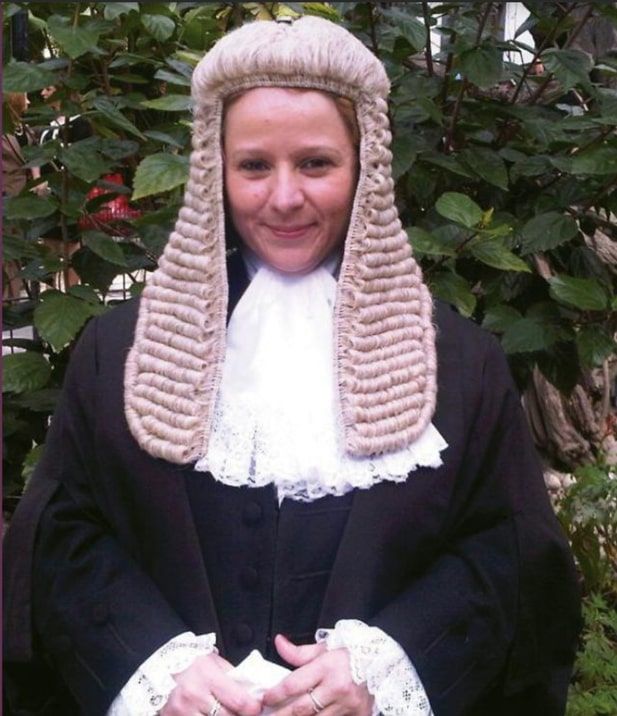The importance of the role of women in positions of leadership cannot be underestimated and the same is true of the role of women in the legal profession.
In 2019, England & Wales celebrated 100 years of Women in Law since the passing of the Sex Disqualification (Removal) Act 1919. The first woman Called to the English Bar was Ivy Williams on Wednesday 10 May 1922, with Helena Normanton becoming the first woman to practice at the English Bar some months later. In Gibraltar, we would come to wait until 1955 when Pamela Benady became the first female called to the Gibraltar Bar.
Whilst the profession has grown over the last century from a purely male dominated world to a more gender balanced profession, there is still a considerable journey ahead before we can hail that the role of women in law is on a par with those of their male peers. The legacy of imbalance in the workplace still needs correcting, and if this is still apparent at the English Bar, it is even more so in a jurisdiction like Gibraltar where women have been celebrating a series of firsts only in the last 15 years.
If we have a look at the emerging picture in the Gibraltar Bar and Judiciary, there appears to be an under-representation of women in senior roles. The prominent examples set out below serve as an indicator of this. Whilst in England & Wales the first appointment of a female Silk came about in 1949, it was not until the appointment of Gillian Guzman to the rank in 2012 that Gibraltar saw its first female Silk. That marks a 63-year gap between the position in the UK and in Gibraltar. Further, if one looks at the Judiciary, the appointment of Gibraltar’s first female Puisne Judge only came in 2010, when Master Karen Ramagge Prescott was appointed to the Bench. She holds various firsts as she was also the first female to be appointed a Notary Public in Gibraltar, and Sitpendiary Magistrate in 2007. In addition, she was the first female appointee from Gibraltar as a Middle Temple Bencher in 2017.
If women in Gibraltar are under-represented in the courtroom, the same is true of the boardroom as there are still firms with either no female partners or indeed no females at the helm.
When one comes to consider that a healthy number of entrants into the profession are female, a concerning trend appears. It seems that within the first 10 years of practice, many women move on from the constant pressure and juggle of independent practice to either Government service or to inhouse roles in either Gibraltar’s vibrant Gaming Industry, or to other financial and commercial entities where they are likely to find greater flexibility and a more clearly defined life/work balance.
As a jurisdiction, we need to do more to take advantage of the huge female talent pool that we have and get women into leadership positions. In practice, if we are to achieve that, we need to start from the premise that gender diversity is a must, together with an acknowledgement that women make great leaders. Women need to be encouraged and empowered to throw their hat into the ring, but to do so they need a level playing field. In a world where visibility in the workplace remains key, in the eyes of those around them, women seem to be at a disadvantage. As a society which is constantly evolving and a profession which must be adapted accordingly, we must strive to highlight the benefits of working from home for both genders. The belief which still seems to exist today, that being seen to be active is more important than being active itself but less visible, must be eradicated. For as long as that is determined to be a prerequisite to success, women are at a clear disadvantage and such attitudes do not contribute to the narrowing of the gender pay gap. The practical loss to the profession is immense. Women are known for generally being more inclusive, empathetic, and strong clear communicators with a greater appreciation of the life work balance and the enrichment that it brings. Making women choose between having a family or a career is neither right nor beneficial, and it makes for a weaker profession. The irony is that the sacrifice is not necessary and that with flexible working and a supportive environment it can be done. It requires a cultural change, and it cannot be done without the support of male peers. In this jurisdiction, the time is ripe for further meaningful change of societal attitudes, and hopefully, this is something which can be achieved within the next generation.
In the meantime, we are still pending some legal firsts – first female Chair of the Law Society Regulatory Authority; first female Chief Justice to name some, but what we really need to strive for is the day in which celebrating a first is no longer news – because we have so many talented women amongst the ranks.

Gillian Guzman KC was Called to the Bar of England & Wales and Gibraltar in 1994 and is a Partner at Hassans International Law Firm. Gillian took Silk in Gibraltar on 8 March 2012, making her not only the first female KC to be appointed in the jurisdiction but the youngest appointee to date. She is a founding member and Chair of the Gibraltar Middle Temple Society.




